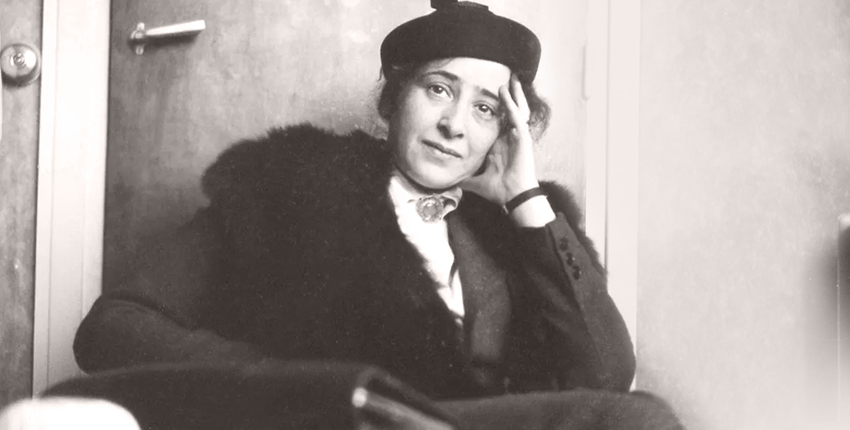23 Jun 2023 | Articles
Hannah Arendt: a thinker to understand the twentieth century
Of Jewish origin, Hannah Arendt was born in Germany in 1906 and died in the U.S. in 1975. Among his various texts, his main works are: Origins of Totalitarianism (1951); The Human Condition (1958); Eichmann in Jerusalem (1963).
In the first work, the thinker states that totalitarianism was only possible because it transformed the human into something superfluous and disposable, because it diluted the boundaries between public and private space, curtailing freedom and individual action, taking advantage of the organized solitude of the masses.
It is in this book that his famous notion of citizenship emerges: the “right to have rights”, regardless of nationality, sexual orientation, ethnicity or social class. All human beings have the right to have rights.
In the work The Human Condition, Arendt brings two important notions: “natality” and “amor mundi”. To escape authoritarianism of all stripes, it is necessary to be “born again” in every discourse of resistance, every deep reflection, every action in the world. On the second concept, she states that we all have to love the world so that the horrors of the concentration camps are not repeated. To love the world means to do politics, in the deepest sense of that term. It means putting the public good above the individual and seeing each human being as part of the whole. For the philosopher, it is possible for each person to act to create a new world: more human, more harmonious, more just.
Finally, in the third work, Hannah Arendt elaborates on her best-known notion: the banality of evil. Covering as a reporter the trial of Adolf Eichmann, a Nazi soldier, she comes to the conclusion that this man is not a monster, someone who seems obnoxious at first glance. Eichmann is an ordinary man who does not see the gravity of the crimes he has committed. Someone who valued efficiency and fulfilled to the letter the orders he received. This is the banality of evil: the individual is unaware of what he is doing because he is “alienated” from his humanity. The most frightening thing, according to the thinker, is to realize that this case is not isolated, because the banal evil is socially rooted in such a way that many people commit crimes or immoral acts without feeling responsible for it.







